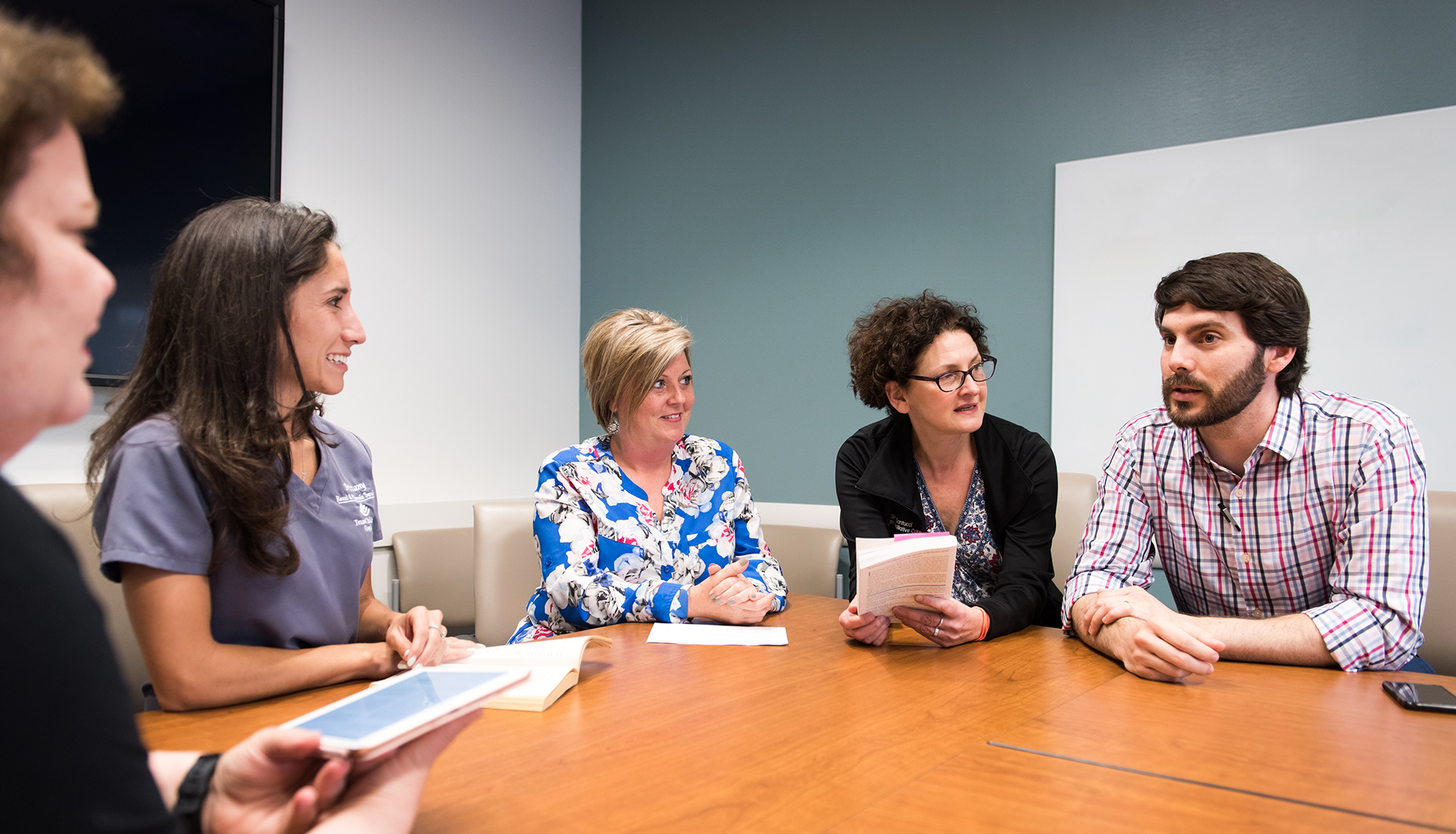

Helping caregivers create and sustain compassionate, empathetic relationships with patients is the overarching goal of the Medical Humanities Program at Texas Children’s Hospital.
The program works to incorporate humanities such as literature, philosophy, ethics, sociology and visual and performing arts into medical education and practice. It includes opportunities for faculty, trainees and staff to participate in music therapy sessions and book clubs and to learn and implement narrative medicine and parallel charting.
Narrative medicine helps clinicians recognize, understand and be moved by stories of illness. In parallel charting, clinicians keep two charts for each patient. One chart logs the patient’s medical record. The other logs the impact of the patient’s experience on the clinician.
“Our hope is the tools provided through this program will help clinicians better process the myriad of experiences they deal with on a daily basis,” said Daniel Mahoney, MD, director of the Medical Humanities Program and assistant professor of pediatrics-palliative care at Baylor College of Medicine. “As a result, we hope it will enhance the way we practice medicine.”
Amanda Ruth, MD, assistant professor of pediatrics-critical care, is associate director of the program. She said the program helps clinicians connect with patients and their families.
“The more you understand their situation, the better able you are to care for them,” she added.
Staying in touch with emotions and connected to patients and colleagues helps clinicians maintain meaning in their work and prevents errors that accompany burnout. A robust medical humanities program that offers training throughout all levels of a clinician’s career can help prevent burnout and promote the development of a more engaged, fulfilled and empathetic clinical workforce.